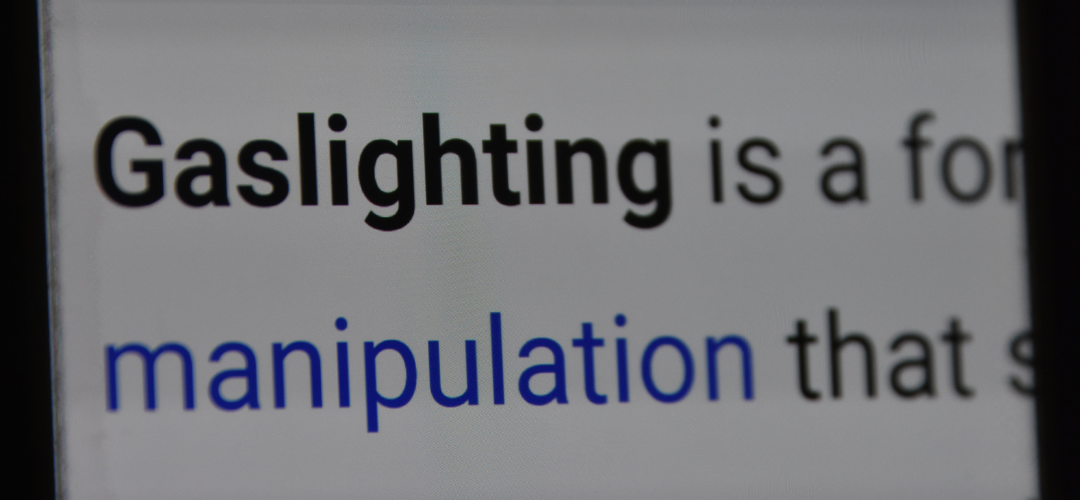Gaslighting is a form of manipulation that is so insidious it can be very difficult to identify while it’s happening. It is a form of mental and emotional abuse.
Gaslighting is a way abusers gain power over their victims by making them believe they are wrong or ‘crazy’ for things like:
- Standing up for themselves
- Holding the abuser accountable for things they said or did
- Calling out/questioning their abuser’s behaviour
- Succeeding and doing well in life
Gaslighting starts slowly and eventually the victim questions their entire reality. This is known as a form of gradual ‘brainwashing’.
Gaslighting: How to identify it in your relationship
It is common to not be able to spot gaslighting when it is happening. This is because this toxic tactic works best when it isn’t seen for what it is.
What you know to be true is denied
If your partner says or does something and then denies it, even though you know it to be true, this is gaslighting.
If you know your family and friends love you, but your partner tries to convince you otherwise, this is another painful gaslighting example.
The denial of the truth, leaving you confused and questioning your own judgement, is undoubtedly gaslighting.
You don’t feel comfortable making your own decisions
When in a relationship with someone who is gaslighting you, you may question your ability to think or make decisions for yourself. This often happens over time, and isn’t easily noticed at first.
If your partner reprimands or ridicules you for making a basic decision, but then praises you for seemingly the same action, this creates confusion. Eventually, you may lose the desire or ability to make decisions on your own.
You may not trust your own instincts anymore.
You’re too exhausted to speak your mind
Being confused and trying to anticipate your partner’s reactions is tiring. When you don’t have the energy left to stand up for yourself or question your partner, it’s difficult to have to energy to realize you’re a victim of gaslighting and other forms of abuse.
Often, the exhaustion stage doesn’t come until later in the relationship, when you feel you are in ‘too deep’ and feel you have obligations to stay in the relationship.
Which, by the way, if your partner makes you feel like you can’t leave the relationship, this is another form of gaslighting.
There is help available
If you or someone you know is experiencing forms of abuse like gaslighting in their relationship, there is help available.
Call the numbers below, and also consider downloading the myPlan app.
Emergency: 911
Non-emergency: (902)490-5020
Halifax Regional Police Victim Services: (902)490-5300
Bryony House Crisis Line: (902)422-7650
Legal Aid Family Law: (902)480-3450 or (902)420-2390
Transition House NS: 1 855 225 0220





